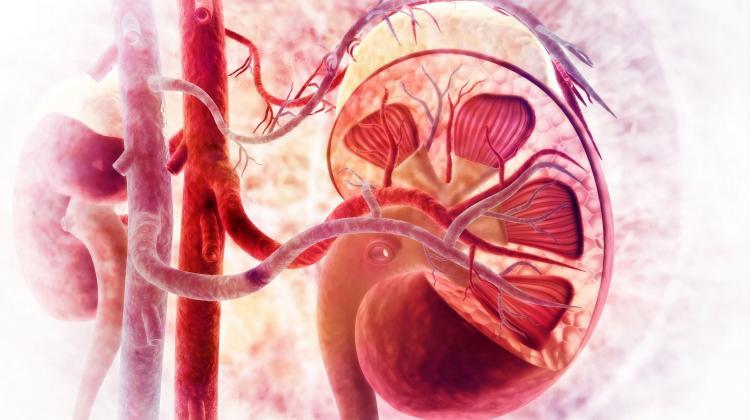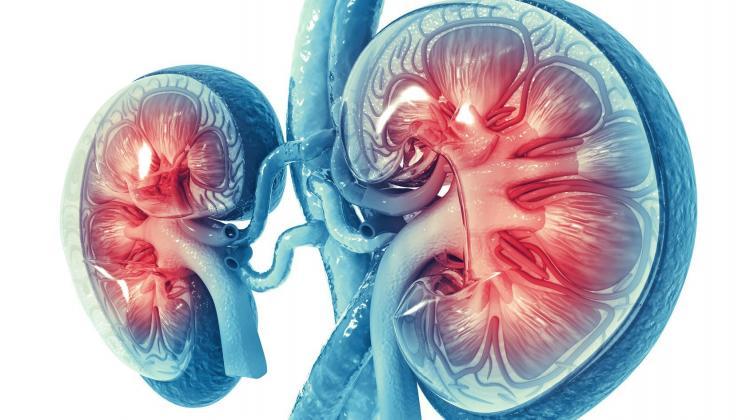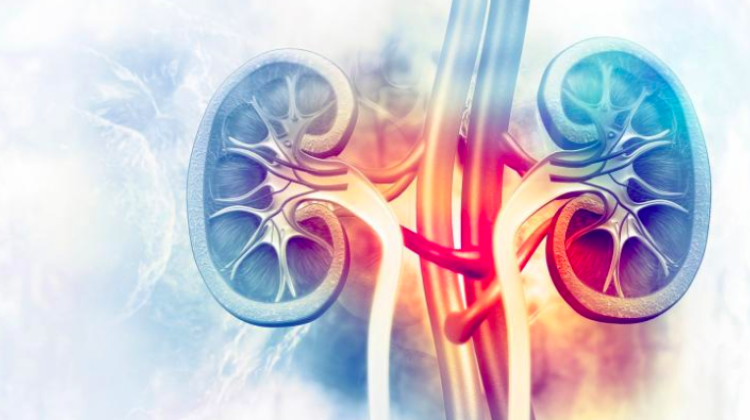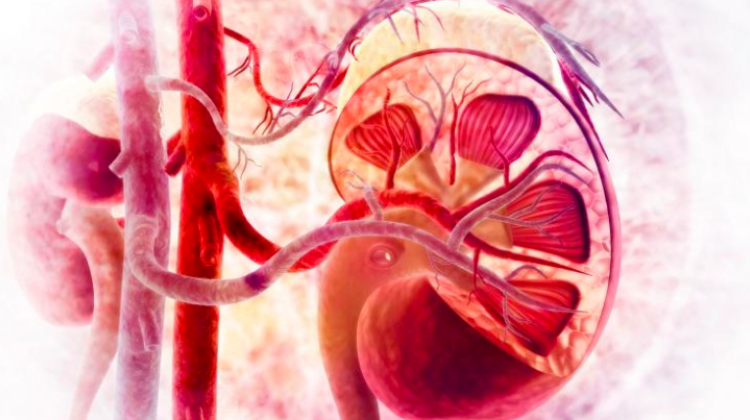The invention of scientists from Warsaw will help in the treatment of kidney diseases
 Photo: Fotolia
Photo: Fotolia
Scientists from two Warsaw universities are developing a new diagnostic method that will allow to detect protein in the urine and predict its presence. This method will allow to reduce the amount of steroids taken in the treatment of nephrotic syndrome.
The nephrotic syndrome is a group of symptoms associated with abnormal functioning of the glomerulus, leading to massive protein loss in the urine. Patients have swollen face and limbs, ascites and fluid in the pleural cavities. In the case of severe disorders, thrombotic complications, renal failure, hypertension, abdominal pain and infectious complications may also occur.
The standard method of treatment is to administer steroids. This promotes the subsidence of proteinuria and the accompanying symptoms of nephrotic syndrome. But it is not a permanent cure. Recurrences of proteinuria may occur up to several times a year. They are caused by inflammation in the body or reducing the dose of steroids. Due to the recurrence of the disease, treatment in some patients (steroid therapy) continues for years and causes the development of side effects.
"Based on previous studies, we have confirmed that the developed diagnostic kit indicates the presence of protein in the urine" - says Dr. Maciej Mazur, quoted in the release sent to PAP.
The invention of Dr. Maciej Mazur from the Faculty of Chemistry, University of Warsaw and Dr. Elżbieta Kuźma-Mroczkowska and Dr. Małgorzata Pańczyk-Tomaszewska from the Medical University of Warsaw will soon be marketed by a new university spin-off - Nephrolab Plus, the representatives of the University of Warsaw inform.
One of the advantages of the solution - according to its creators - is the simplicity of obtaining an unambiguous result. The tests carried out at home involve adding a tablet to a small urine sample collected in a container. After a minute, the test shows the presence or absence of protein in the urine. In the case of competitive products, patients have problems with the interpretation of results. In the case of popular strip tests, the shade on the urine strip must be compared with the colour scale.
Researchers want to go one step further and try to introduce a solution that will capture the moment before the appearance of protein in the urine. Although there are different methods of measurement, all of them inform the patient about the occurrence of proteinuria, that is, the existing disease relapse. If it were possible to detect the moment before the appearance of protein in the urine, many patients would receive a signal of an impending relapse. This would allow them to see the doctor in advance, which means the possibility of taking smaller doses of medication.
"We know that just before the disease recurs, when the protein does not appear yet, the urine changes in a way that is visible to the naked eye. The real breakthrough in our work will be a clear confirmation that the device detects this phase, allowing patients to act quickly. This requires additional research, but I am optimistic. It is difficult to say exactly how long this research will take" - explains Maciej Mazur.
Testing of prototype home diagnostic kits made available to a selected group of patients will start soon. The tests will take several months. Their goal is to confirm the effectiveness of the method and precision of the device. Confirming whether the kit can predict the recurrence of proteinuria before it occurs will take longer.
Nephrolab Plus was created as a result of strategic cooperation of the University of Warsaw and the Medical University of Warsaw, with the support of the University Technology Transfer Centre of the University of Warsaw. Before the founding of the company, the team received a pre-implementation work grant for the development of the discovery as part of the Innovation Incubator+ programme. The invention developed by the company is protected by a patent.
Efforts are also being made to extend the use of the proteinuria test. It could be used to determine protein in the urine of animals.
"But we need to be patient. The diagnostic kit we propose is not sufficient to change the treatment regimen of patients with nephrotic syndrome. After we confirm scientifically that is possible to predict the occurrence of proteinuria, it will be necessary to create a laboratory method that confirms the indications of the kit. In the next stage, it will be necessary to conduct clinical trials evaluating the effectiveness of treating patients with lower doses of steroids. The creation of a laboratory test is a necessary condition on the way to introducing changes in treatment regimens" - explains Dr. Elżbieta Kuźma-Mroczkowska from the Medical University of Warsaw, quoted in the press release sent to PAP .
Symptoms of the nephrotic syndrome are very onerous. Patients require frequent urine tests (in the period of severe stages of the disease - even daily), blood tests, clinic visits, and in the relapse period also hospitalisation. Steroids taken over long periods lead to numerous side effects including obesity, hypertension, diabetes, peptic ulcer disease, cataract, glaucoma, osteoporosis, immunosuppression, recurrent infections and inhibition of growth in children. Some children temporarily require individual home-schooling due to a significant immunity reduction, frequent infections and recurrent disease.
PAP - Science in Poland
ekr/ zan/ kap/
tr. RL
Przed dodaniem komentarza prosimy o zapoznanie z Regulaminem forum serwisu Nauka w Polsce.

















